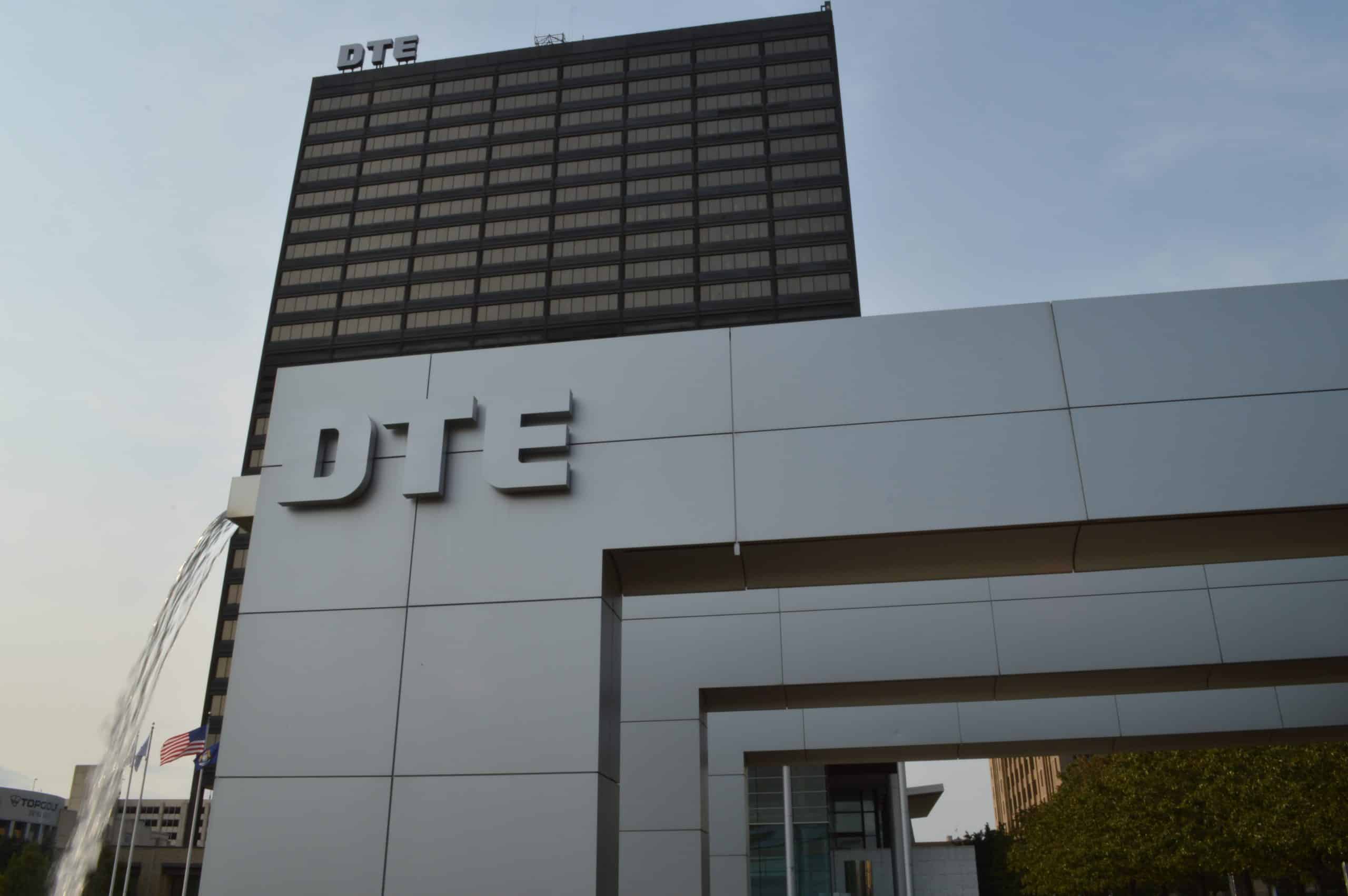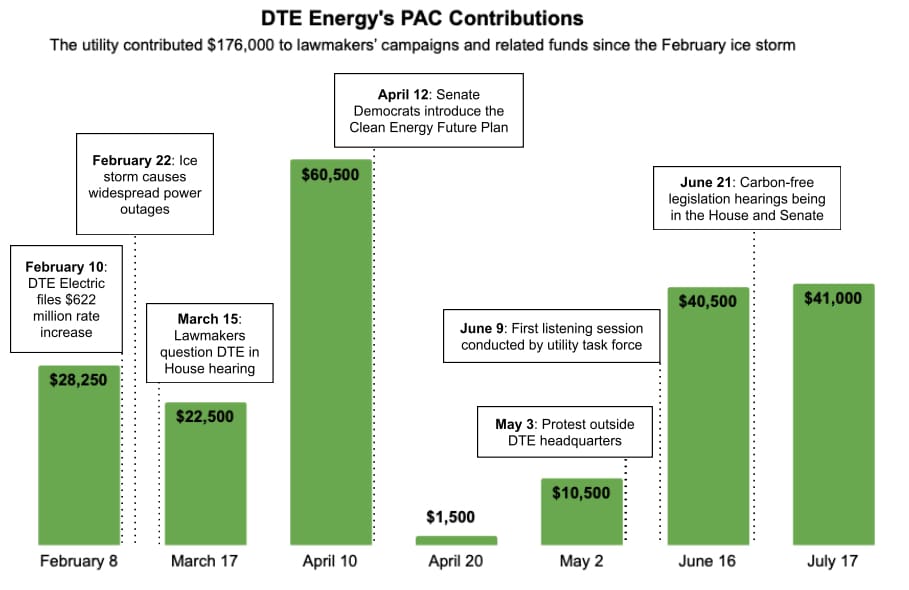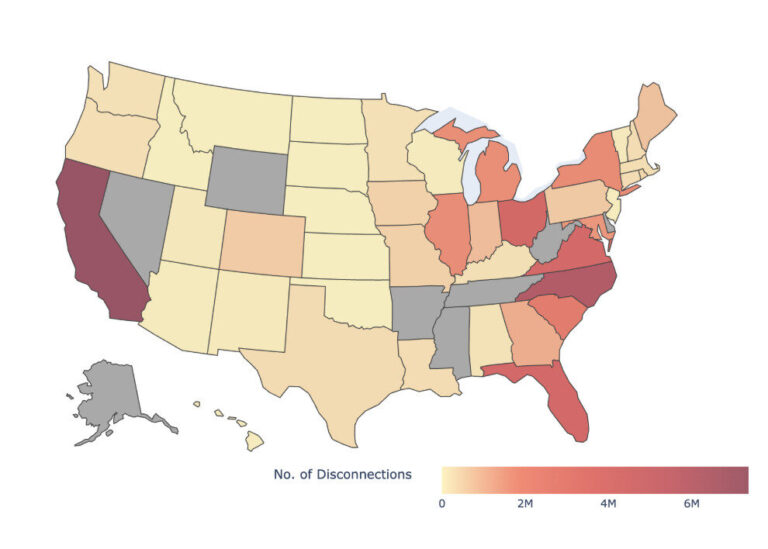Michigan legislators took $176K from DTE since pledging new era of utility accountability after outage backlash

DTE Energy has given $176,000 to Michigan lawmakers’ campaigns and related funds since a February ice storm caused lengthy power outages, a reoccurring event that stoked widespread backlash from DTE customers. The spending comes as Democrats attempt to pass climate and consumer protection bills, raising questions over whether they will deliver on promises that some have made to rein in the utility.
Michigan’s House and Senate energy committees held a pair of hearings in March where members grilled utility executives and relayed the frustrations of residents whose lives were upended by days-long DTE outages. But despite blasting the outages as “unconscionable” seven months ago, legislators appear to have softened their push for utility accountability – and roughly 100 of them have taken DTE money since then, state campaign finance records show.
Donations from DTE’s political action committee, or PAC, have padded campaign accounts tied to lawmakers and broader party funds. Of the total $176,000 disbursed by the PAC since the March hearings, $94,500 has flowed to Democrats, who have promised to use the legislative control they won in 2022 to take climate action and advance clean energy. The DTE PAC gave $81,500 to Republicans during the same span. State records indicate that only one lawmaker, Rep. Mike McFall, a Democrat, returned DTE PAC money after the February outages touched off public blowback against the utility.
DTE PAC giving comes at key times
Just days after a Michigan House energy committee hearing where members repeatedly invoked their constituents’ frustrations with outages and poor utility service, DTE’s PAC doled out $22,500 to lawmakers, state records show. More than half of that sum funneled to energy committee members and legislative leaders who have at times frustrated environmental advocates by slow-walking utility accountability and clean energy legislation this year.
Among those who received DTE money was Rep. Helena Scott, who chairs the House energy committee. Scott has taken $3,000 from DTE’s PAC since the February outage crisis while leading a statewide “listening tour” to hear customers’ frustrations with the utility, which have been highly publicized for years.
At the March hearing she oversaw, Scott said that “change needs to come, and we’re going to start doing that in this legislature.” When she announced the bipartisan task force in May, she promised “a new day here in Michigan and a new era of accountability” and indicated that legislators would pursue new legislation after the listening sessions. But the task force’s last scheduled public event was August 30, and the legislature has not yet taken meaningful action. Lawmakers are expected to recess sometime in the coming weeks until 2024, and advocates worry legislators will leave Lansing without passing strong climate and utility accountability bills.
This is not the first year in which Michigan legislators have held hearings to investigate persistent outages and calls for utility reforms; they have historically stopped short of passing laws. Bills to force DTE to increase compensation for customers facing lengthy outages have languished, along with measures to blunt DTE’s political influence. Governor Gretchen Whitmer in 2021 called for “tangible, immediate action” when another major outage blanketed DTE territory for days. Still, Michigan’s outage rate remains double the national average after decades of inadequate grid maintenance. DTE remains one of the most consistent and influential backers of Michigan lawmakers.
State filings show that six of the nine legislators on the latest outage task force have taken DTE money since March – Democrats Scott, Joey Andrews, Cynthia Neeley, and Amos O’Neal along with Republicans Pat Outman and Pauline Wendzel. Of the 17 lawmakers who serve on the House energy committee, 13 have taken DTE PAC money since the February outages, according to state records. Funds tied to 11 of 14 members on the corresponding Senate committee have taken DTE PAC contributions since then.
Some of that giving came when DTE’s PAC distributed $60,500 to lawmakers on April 10, two days before Democrats debuted a clean energy package that would require utilities to transition to 100% carbon-free electricity – a provision that was met with skepticism from DTE. That distribution included $10,000 each for funds that broadly support House Democrats, House Republicans, Senate Democrats, and Senate Republicans.
The PAC followed up those contributions with another $10,500 to lawmakers on May 2, the day before U.S. Rep. Rashida Tlaib joined protesters outside DTE headquarters to oppose DTE’s political influence. (Later that week, DTE shareholders squashed a proposal that would have required it to disclose its annual political spending, including dark money contributions that obscure the donor by routing money through LLCs and 501(c)(4) nonprofits.)
Then on June 16, a week before Democrats began hearings on the clean energy proposal, the DTE PAC pumped another $40,500 into lawmakers’ coffers, including $1,000 to 100% carbon-free electricity bill sponsor Sen. Sam Singh. Lawmakers have since loosened the proposed bill’s requirements, drawing concerns and sharp criticism from environmental justice and clean energy groups who worry legislators are ceding too much ground to utilities.

In October, weeks before the legislature may adjourn for the year, Michigan advocacy groups accused utility lobbyists of stalling negotiations as lawmakers privately workshop changes to the bills.
“The entire process has really been co-opted by utilities,” Christy McGillivray, political and legislative director for the Sierra Club Michigan, told Planet Detroit this month.
A crescendo of public outrage aimed at DTE has kept a bright spotlight on the utility’s interference at the Capitol. The Michigan Environmental Justice Coalition recently launched a campaign encouraging Michiganders to contact their legislators “demanding that they refuse DTE’s dirty money.” The group’s website notes that DTE’s political spending is designed to “influence legislation that could impact their corporate profits, and the contributions are often strategically timed.”
The DTE PAC’s largest donation of this year came shortly before the February outages. Earlier that month, a campaign fund affiliated with Rep. Joe Tate received $20,000, state filings show. Tate, who serves as House Speaker, is one of the most influential lawmakers in Michigan when it comes to setting Democrats’ legislative agenda. That contribution came two days before DTE filed for a $622 million electric rate increase.
Publicly available campaign finance data covers the period through July 20. The Michigan Department of State will publish more recent campaign finance data later in October.
The data that informed this analysis are available here.
DTE influence operation targets Democrats
Democrats’ victories in last November’s election sealed control of Michigan’s government, teeing up major changes to the state’s energy policy. In Minnesota, another state where Democrats seized control of the legislature and the governor’s office in the last election, lawmakers swiftly passed 100% clean electricity legislation this year to the cheers of clean energy and environmental justice advocates.
The potential for similar action in Michigan posed a clear threat to DTE’s status quo, including its ongoing reliance on methane gas, a fossil fuel.
Donors linked to DTE began deepening their financial ties to Democrats last year. The Detroit News revealed this month that a DTE-affiliated dark money group, Michigan Energy First, gave $1.1 million to a Democratic Party fund last year. Though the group has been influencing Michigan politics for nearly a decade, this was its largest expenditure to date.
Michigan Energy First also gave $750,000 last year to a nonprofit that supports Democratic Governor Gretchen Whitmer, its largest-ever donation to a single state officeholder, according to The Detroit News. Whitmer has campaigned on expanding clean energy and setting a 100% clean electricity requirement, though she has also taken DTE campaign money throughout her political career. DTE has even hosted a fundraiser for her.
Board members for Michigan Energy First include Theresa Uzenski, DTE’s manager of regulatory accounting who also serves as treasurer of DTE’s PAC, as well as DTE lobbyists Andrew Coulouris and Renze Hoeksma, the Detroit News reported.



